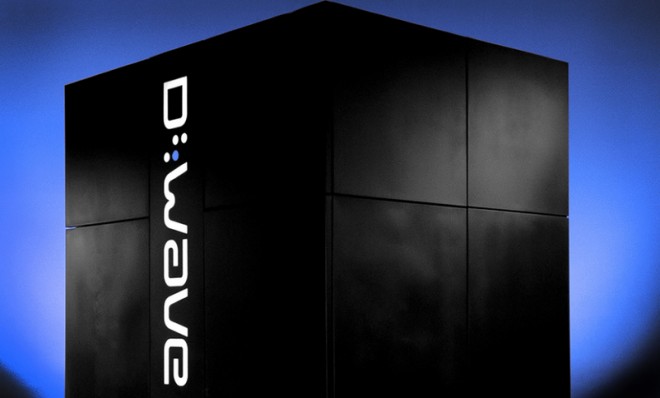What is a quantum computer — and why does Google need one?
These almost unfathomably futuristic machines can run more calculations in an instant than there are atoms in the universe

A free daily email with the biggest news stories of the day – and the best features from TheWeek.com
You are now subscribed
Your newsletter sign-up was successful
The nonprofit Universities Space Research Association just splurged on a new toy: A $10 million D-Wave Two quantum computer. The machine is the most advanced commercially available quantum computer in the world.
USRA installed the device, which should be online by the end of September, at the new Quantum Artificial Intelligence Lab at the Ames Research Center in Silicon Valley, where researchers from USRA, NASA, and Google will put it use.
What is a quantum computer? Think of it this way: Regular computers process information using bits, which can innately have only one of two values (zero or one, plus or minus, yes or no, etc). Quantum computers use qubits, which can simultaneously represent more than one value. In that sense, "quantum computing could herald a new era of number-crunching," said Robert McMillan at Wired, by breaking out of the "binary" system of computing. USA Today explains:
The Week
Escape your echo chamber. Get the facts behind the news, plus analysis from multiple perspectives.

Sign up for The Week's Free Newsletters
From our morning news briefing to a weekly Good News Newsletter, get the best of The Week delivered directly to your inbox.
From our morning news briefing to a weekly Good News Newsletter, get the best of The Week delivered directly to your inbox.
A quantum computer takes advantage of a principle in physics that on the atomic scale particles can be in many places at once or have multiple properties such as magnetism or an electrical charge simultaneously. They would store data in these multiple positions at once, unlike conventional computers, which only store one value or data point in their circuits at a time. [USA Today]
That means Qubits can multitask, which results in outstanding power. "A quantum computer with 300 qubits could run more calculations in an instant than there are atoms in the universe," says Technology Review.
Considering there are between 10 to the 78th power and 10 to the 82nd power atoms in the universe, quantum computers sound unfathomably, maybe even unnecessarily, fast. The fastest supercomputer, the Titan Cray XK47 at Oak Ridge National Laboratory in Tennessee, can already perform quadrillions of calculations per second. What function could possibly need more power than that?
Apparently, something called machine learning, or "the way computers take note of patterns of information to improve their outputs," says Quentin Hardy at the New York Times. "Personalized Internet search and predictions of traffic congestion based on GPS data are examples of machine learning." Hardy goes on: "The field is particularly important for things like facial or voice recognition, biological behavior, or the management of very large and complex systems."
You can see why this might be appealing to Google, right? As Hartmut Neven, Google's director of engineering, wrote:
A free daily email with the biggest news stories of the day – and the best features from TheWeek.com
We believe quantum computing may help solve some of the most challenging computer science problems, particularly in machine learning. Machine learning is all about building better models of the world to make more accurate predictions. If we want to cure diseases, we need better models of how they develop. If we want to create effective environmental policies, we need better models of what's happening to our climate. And if we want to build a more useful search engine, we need to better understand spoken questions and what's on the web so you get the best answer. [Google]
Carmel Lobello is the business editor at TheWeek.com. Previously, she was an editor at DeathandTaxesMag.com.
-
 The 8 best TV shows of the 1960s
The 8 best TV shows of the 1960sThe standout shows of this decade take viewers from outer space to the Wild West
-
 Microdramas are booming
Microdramas are boomingUnder the radar Scroll to watch a whole movie
-
 The Olympic timekeepers keeping the Games on track
The Olympic timekeepers keeping the Games on trackUnder the Radar Swiss watchmaking giant Omega has been at the finish line of every Olympic Games for nearly 100 years